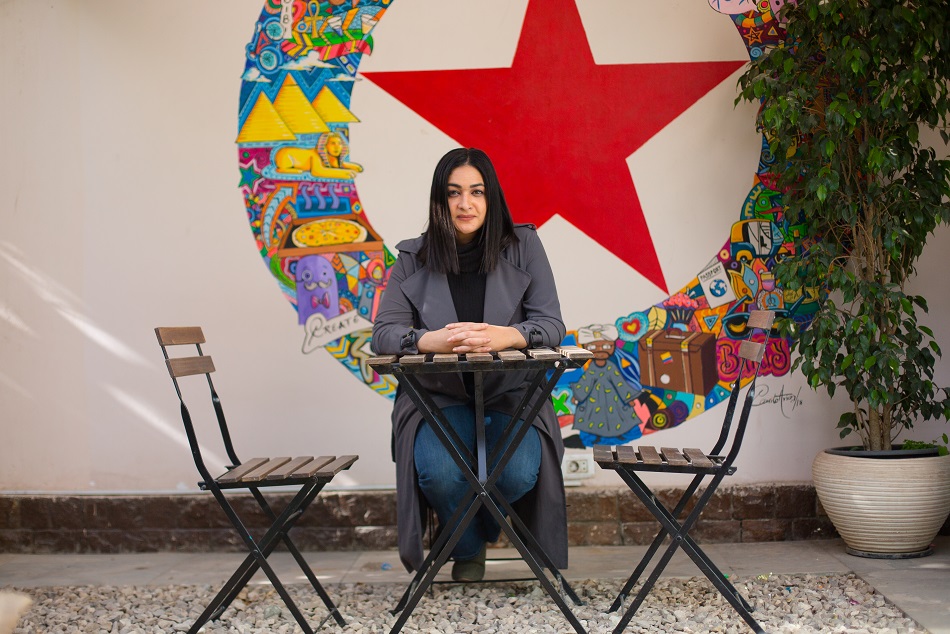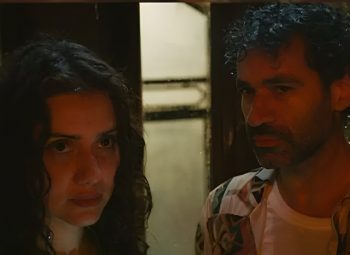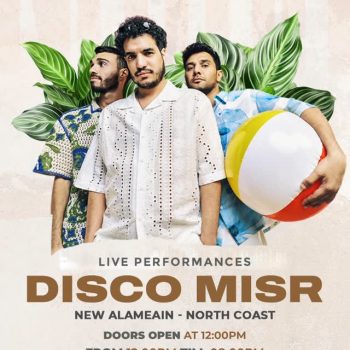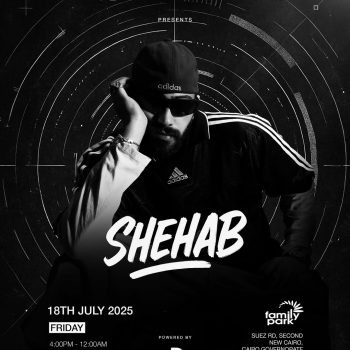Words are powerful; that’s a fact. More specifically, the words of a specific young woman got us curious to meet the person behind the typed words that carry so much meaning and depth. Her words help thousands feel they’re not alone in whatever they’re going through, and that connection, that spark that arcs between us, is one of the greatest privileges we possess.
Okay, enough with the mystery already!
We’re talking End-quote co-founder, Sabah Khodir, boys and girls! We invited her to have a sit-down with us, your loyal gossip whisperers. And it was a great privilege to delve deep into what Sabah had to say.
Q: What did you have for breakfast this morning?
A: One egg, sunny-side up, and three pancakes! And I put pepper and cumin on the egg, but to be fair about the pancakes, they were made of oatmeal and banana, (she laughs) I’m a good person, healthy! Don’t judge me!
Q: What’s the golden rule of writing?
A: Oh that’s a very good question. There are so many things, but I think the most important thing when you’re writing is not to try too hard to sound like a writer. And also, be very close to your memories. Take a lot of pride in what you’ve experienced. Because if you’re ashamed of something that has happened to you, or you’re afraid to speak about it, then you will not be able to own it enough to write it in a poem. You’ll hide behind a metaphor, and you’ll try very hard, that the person reading it will not know you are in pain, and that defies the purpose!
Because the whole purpose is for poetry to be powerful, for writing to be powerful, and for it to be owned by the person that’s writing. For that to happen, you have to be able to own your trauma and to say “yes, this happened to me, but it happened to me and I’m okay with the things that have happened to me because I own them, they’re mine. They’re not yours; you don’t get to have a choice in them.”
Q: What are you currently working on?
A: Right now, I’m working on a book. I’m almost done with it; it’s called “I wrote this for you”. It’s intense, it’s a poetry collection in the chronological order of things that have happened with this person; from the beginning ‘til the end of our situation together. Our destiny basically. The book sheds insight into the way I’m writing, and why I use particular terms while writing. For example, I use a lot of sensory, a lot of symbol systems; this is how I want people to remember me. I bring up my parents very often, I bring up my mother the most, and I bring up mothers in general often; they bring a sense of power that I enjoy. I use the words “boy or girl” more than I use “man or woman” because I feel like we’re all just boys and girls really.
Q: How did you decide on your message before your TEDx talk?
A: The first time they reached out to me, they mentioned to me all the things I can’t talk about. That was the first thing that I was made aware of. It was interesting for me, because I knew then, that regardless of what I really wanted to talk about, there were a lot of boundaries about what can be said, which was fine, because I knew that what I wanted to talk about would be much more socially impactful than anything else.
One time I was having trouble sleeping, and I was thinking about how much I wished I was who I was three-four years ago, before I was diagnosed, and I was thinking, I just wish someone had told me the process better than this. Because I wish I didn’t feel so helpless in what I was going through. And at the time, I was trying to do mindfulness and trying to count my breaths in a specific way, and then I thought this is what I want to talk about.
Not to sound cheesy but, if you have a voice, you are responsible for the people that take the time out of their day to even listen to you.
Q: What elements do you feel influence your writings the most?
A: I really like to talk about my culture, I like to talk about my trauma, in a way where even if I’m victimising myself, I don’t want to feel as though others are feeling sorry for me. A lot of the time when people meet me, they ask me if they can give me a hug, and I always think, are they asking because they like me or because they think I’m a sad person? (She laughs) But I’m not, I’m generally not a sad person, on the contrary, writing centres you. It makes you extremely empowered. We don’t write what we know, we write what we’re trying to discover. We’re trying to allow ourselves the open opportunity to know more. That’s why there’s a lot of research involved in writing, and there are a lot of questions that you need to ask yourself. And you need to be flexible to the idea that you may write one thing one day and be very certain, and the next day you may change your mind and write a different thing. And it’s okay, because that’s the only way you’re aware that you actually have a working, functioning brain that is questioning the circumstances around you. Trauma, culture, feminism, and activism as a whole.
Q: Could you elaborate more on the Feminism and activism part?
A: I like men to be involved when I discuss feminism. A lot of people think I’m anti-men, but I’m not anti-anyone really, I just want there to be open conversations and people being able to own up to the fact that they do contribute to some kind of oppression. So that’s usually what it’s centred around. I want everyone to be involved in the conversation and I don’t want to be the only one speaking. For example, a lot of the time when I’m writing something, I remember things that other people have told me and I don’t like to rephrase it as something I have said. So that’s why I always have open conversations in my writing “He said”, “She said”, and “I said” because I want them to own the speech and to own the conversation because they’ve taken part of it, they earned a position in this.
Q: What are your views on freedom?
A: See there’s a difference between being free to speak your mind and then there is hate speech, and there is belittling and disregarding another person as a human being. And this is where we get lost in the thought of diversity. When a person tells you, you have the right to be free, you have to make sure it’s not what they assume freedom looks like, because part of freedom and democracy is seeing something you don’t like and letting it happen anyways, as long as it’s not hurting anyone else
Q: What about your plans for the future?
A: Publish the book. Right now, End-Quote is the biggest artistic platform in the Middle East. We’re the biggest in up and coming writers, photographers, painters, illustrators, and animators. We showcase a lot of artists, it’s all entirely purely organic work from everyone, and it’s completely non-generic. Our plan (the team) is that we want to start to travel in the Middle East and hold mini-events all over.
My personal focus is mental health in the Middle East; I think it’s very important that we display mental health in a different way. We need to be able to understand, empathise, and allow it to be an okay thing. It doesn’t have to be extremely romanticised, and it doesn’t need to be entirely intellectualised either. It just needs to be as is, which is [that] some people have several different diseases; mental health illnesses does not make a person abnormal. It’s just a part of the world they live in right now, and that should be accepted.
Q: Your writing is public, and online, so there’s room for people to voice their opinions; how do you deal with people who oppose your views?
A: At first it made me upset, and I felt the need to justify myself, like maybe I should explain better, maybe they’re not understanding what I’m trying to say. But now I don’t deal with them at all. I’ve gotten really ridiculous threats in the past, like when I talk about anti-rape in the Middle East; someone would send me a message and say something like- “if I see you on the street I will rape you. Because look at the way you’re dressed and look at what you’re instigating. Girls like you are the reason why other women get raped.” What do you say to that? How do you skin-back so much that is wrong with that thought process in itself?
There’s so much in that person that they don’t understand or know. They’re not even aware of the power of their words. And it’s not my job to educate them, it’s theirs. This person has approached me, an uneducated individual, I don’t have to educate them. I won’t give anybody who has an oppressive or violent way of thinking the time of day to sit and discuss with them topics that are far beyond their intellectual capabilities.
Q: Tell us about your writing process
A: It’s all a matter of consistency, forcing yourself to write crap even if you don’t like what you’re writing, and forgiving yourself for writing crap. Telling yourself you’ve written great things before, and this isn’t the best, not everything is going to be a home run, and that’s fine. Write every single day. That’s what you should do if you wanna be a writer. Everything around you is an inspiration to something you can write about. So just write. It’s what I do.
______________
By Dina Khafagy








